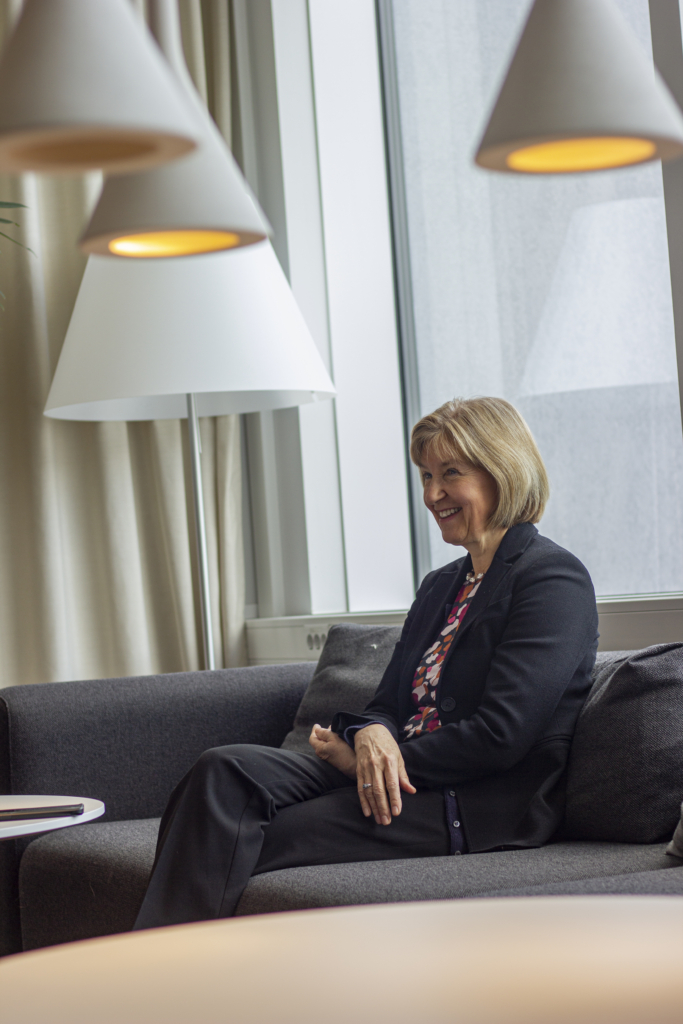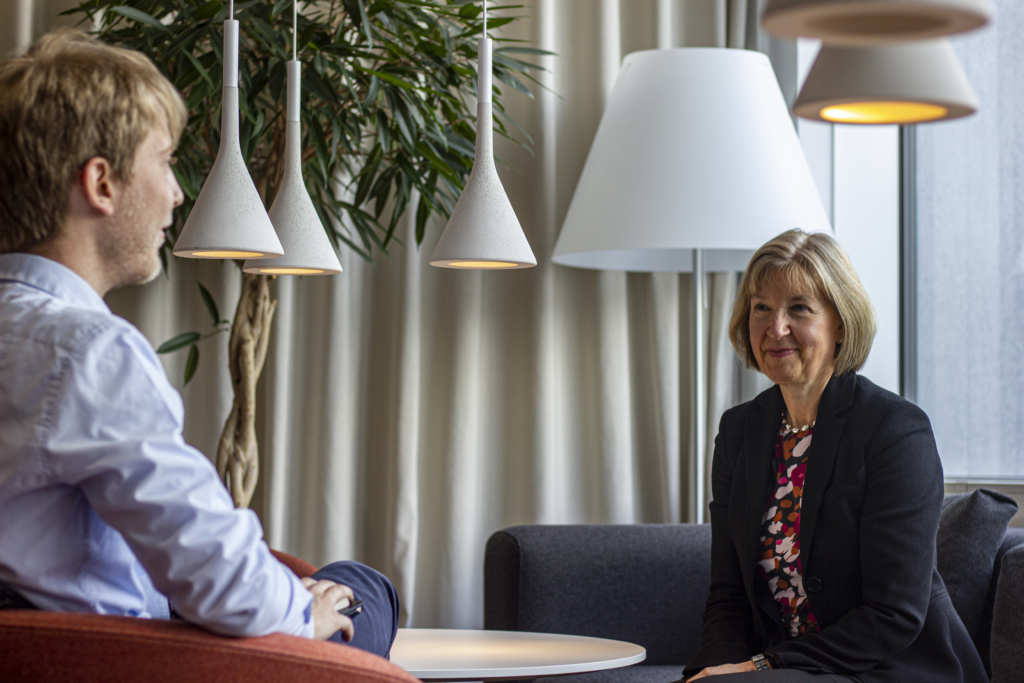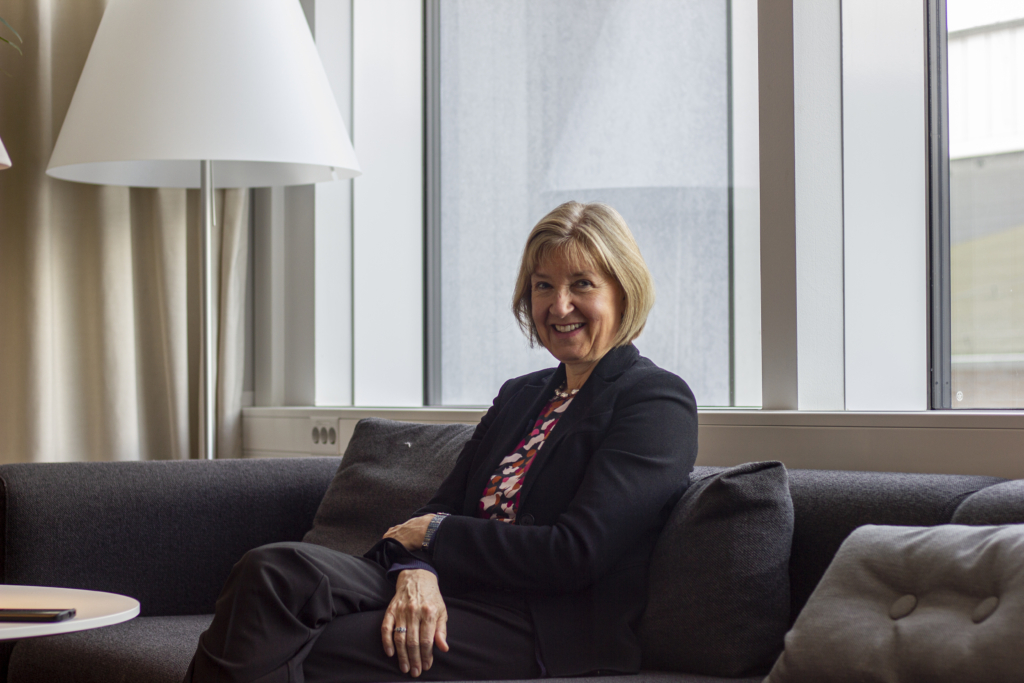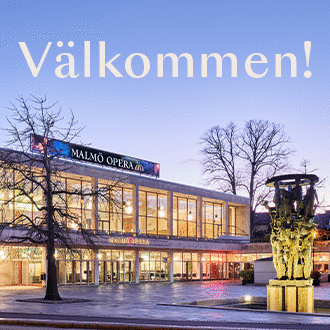When visiting Skåne to expand Finnish business opportunities, Finland’s ambassador to Sweden, Maimo Henriksson, spoke with Lundagård on a recent Friday afternoon, covering everything from the Ukraine war to her time at university.
In the modern, plush interiors of a building called ‘The Spark’ in Lund’s bioresearch hub, Medicon Village, I met Maimo Henriksson, the Finnish ambassador to Sweden. She was there to find out “the niches where some Finnish knowledge” could fit in to encourage collaboration between the Finnish and Swedish biotech sectors.
With the bright April sunlight streaming through floor-to-ceiling windows, we sat down and started talking—Ambassador Henriksson on one side of a low coffee table with the Ambassador’s husband, Dr Teemu Kokko, and staff listening patiently nearby.
Before tackling the most pressing geopolitical issues, I ask Ambassador Henriksson how she came into diplomacy—was this a career she, like many budding diplomats, envisaged from a young age? A diplomat’s life “hadn’t been in my scope at all, despite the fact that I have always liked languages”, she tells me.

Maimo Henriksson says of her choice of profession.
Photo: Azin Khosravi.
Like many students, Ambassador Henriksson did not know what she wanted to study, let alone what career path to take after her studies. Having studied at the Hanken School of Economics, a Swedish-speaking university in Finland, she started off studying languages and combined her degree in business administration from Hanken with a law degree from the University of Helsinki.
Soon after getting her first job at a Finnish business bank, she was approached by a civil servant working at the Foreign Ministry to work on a project about Finland’s international branding. Although this project only lasted a year, she later joined the Ministry’s diplomatic programme and has not turned away since.
She tells me an anecdote of a week in 1989:
“Having been one week at work, we first had Gorbachev’s visit to Helsinki, and I was one of the younger people brought into the Finlandia hall—at that time I was 28—and then one month later, the Berlin Wall came down”.
“I was thinking to myself, this is a place of action—maybe I should stay here” she tells me with a glint in her eye. Her fond reminiscence was certainly
justified: all these pivotal changes in the European
fabric took place before she turned thirty years old.
Her first posting abroad was to Russia, a country we will turn to later in our conversation. “This was during the Yeltsin years”, between 1992 and 1995. “A very different Russia to the one we know today”. “A free Russia”, a Russia that “actively sought” for international cooperation, a Russia with a “positive atmosphere”.
After her time spent in Russia, Maimo Henriksson returned to Helsinki to be part of the team that coordinated Finland’s sixth-month Presidency of the Council of the European Union in the latter part of 1999. Her next posting was to be the Deputy Head of Mission in Budapest in the early 2000s, and I ask her if she ever met Viktor Orbán—who was re-elected two days after our interview for a fourth consecutive term in power. “At that time, [Orbán] was a kind of hero” who “had demanded the Iron Curtain be torn down […] a very different Orbán to the Orbán we see today”.
As Director-General at the Eastern department of the Finnish Foreign Ministry, she sat around the same negotiation table as Russia’s President Vladimir Putin on many occasions. Given Putin’s transformation of Russia from an authoritarian state to an ‘international pariah’ waging war on its neighbour, I wonder if he is a particularly scary individual to sit next to. Ambassador Henriksson tells me that this was not the case: these were “very normal, international meetings as you would have with any other Prime Minister or President”—nothing out of the ordinary.
“The first thing in the morning what I think of nowadays is what happens in Ukraine.”
“The war that Russia started 24 February, has, of course, changed things a lot”, she explains. “The first thing in the morning what I think of nowadays is what happens in Ukraine.”
“I feel so sad for the Ukrainians and for Ukraine”, but “also partly for Russians, because there are many Russians that are not happy” with the war and economic situation in Russia.
I was particularly eager to ask her about her experiences in Russia—few people have had such an opportunity, and I am curious to learn what people are like in a country that has received much international scrutiny in recent times because of its leader’s invasion of Ukraine.
“The Russians are very friendly and extremely hospitable. We were very sad when we left Moscow after three years […] because of all the warmth we felt from the Russians”. She looks towards her husband, who is sitting at the next table. Teemu Kokko nods in agreement, saying “that both the people and the culture” were deeply “warm-hearted”. Ambassador Henriksson adds, “the fantastic, literature, music, the architecture”. Her husband joins in again: “I would say, [the Russians] deserve better”.
Ambassador Henriksson imagines a world where people would take the train from Helsinki to the Opera in St. Petersburg—a short, three-and-a-half-hour trip. “It’s sad that we don’t have that kind of relationship with Russia”.
With popular support for joining NATO reaching record levels in Finland – and a decision drawing closer by the hour – that kind of world seems increasingly impossible. As time for our conversation starts running out, I ask Ambassador Henriksson if Finland will in NATO? “Things could go that way,” she tells me, mulling over her words before answering.
In an interview with a Swedish newspaper, Västerbottens Kuriren, Ambassador Henriksson said that it is “absolutely” key that Finland and Sweden should apply together—if Finland ends up applying—and she still stands by those words.
“Sweden is our most important bilateral partner”, says Ambassador Henriksson. “It would not be a good situation” if Finland and Sweden went in different ways. After all, she says, “Skåne has been part of Sweden for only 300 years, and we have 700 years of experience of belonging to Sweden”.

Photo: Azin Khosravi.










